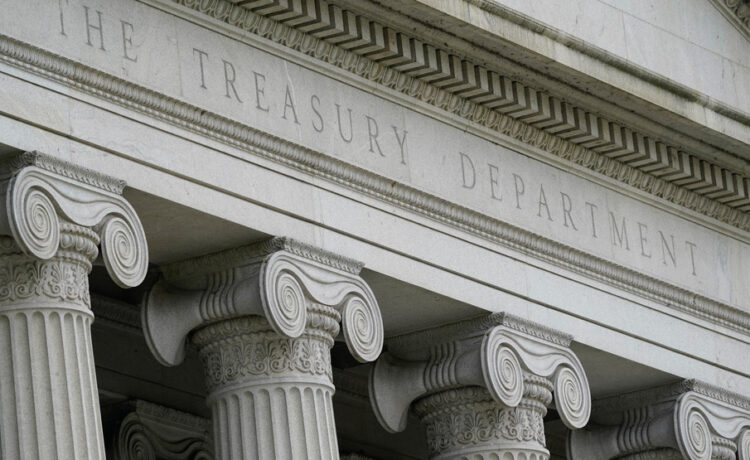WASHINGTON (TND) — Treasury Department officials are worried that digital currencies are giving terrorist groups, drug cartels and other groups that threaten national security access to money that finances their dangerous activities.
With more limited ability to access traditional financing methods through sanctions and cooperation with other countries, cartels, terrorist groups and state actors like North Korea and Russia have increasingly turned to virtual finance methods to keep their operations going.
“All these bad actors need one thing: money. Terrorists, fentanyl traffickers, the Russian military, they all need to spend and to move money,” said Sen. Sherrod Brown, D-Ohio.
Deputy Treasury Secretary Adewale Adeyemo told the Senate Banking, Housing and Urban Affairs Committee that digital currency is a tool that is frequently used by cartels, terrorist groups and other malign actors use to subvert sanctions and being cut off from the traditional financial system. He also asked Congress to pass a bill that would give the Treasury Department more tools to target foreign providers of digital assets.
“While we continue to assess that terrorists prefer to use traditional financial products and services, we fear that without congressional action to provide us with the necessary tools, the use of virtual assets by these actors will only grow,” he said.
While the Treasury Department has worked to cut off the groups and nation states from traditional financing through the banking system, there are still gaps when it comes to digital currency. Much of the way cryptocurrency and related tools operate is in a legal gray area amid a lack of action from Congress to set up a framework for them to operate under.
Some leaders in the industry have called for regulation to help combat its issues with illicit finance, specifically when it comes to stablecoins, digital currencies that are tied to another asset like fiat currency or gold. Coinbase chief legal officer Paul Grewal said in a post on X prior to the hearing that Congress needs to pass stablecoin legislation.
Lawmakers said that cracking down on illicit finance maneuvers is also key to stopping the flow of fentanyl from flowing across U.S. borders and fueling an overdose crisis. China has agreed to work with the U.S. to slow the flow of fentanyl, classifying all forms of it as a controlled substance and taking other measures.
But in the time since then, China has become the primary source of precursor chemicals that are later synthesized into fentanyl by drug cartels in Mexico, who then smuggle the drug into the U.S.
“We’ve made very clear that as we look at the intelligence and information, if we find that those precursor chemicals are still coming to United States, we’re going to have to use our sanctions authorities to go after those companies,” Adeyemo said.
Another issue with U.S. sanctions addressed in the hearing was limiting Russia’s ability to fund its war effort and cut off its supply of Western technology.
The U.S. is already working with European allies to improve the enforcement of sanctions against Russia as it continues its invasion of Ukraine. Numerous sanctions have been instituted against Russia, people connected to the Kremlin and its military group, but it has been able to get around sanctions in some instances.
A report earlier this year from the Kyiv School of Economics found that U.S.-made technology was still being found in weapons used against Ukraine and that sanctions had only reduced the level of those components by 10%, which was the subject of a separate Senate hearing. Russia has also used digital currency to finance its war efforts to get around sanctions.
“It’s key that we do this in a multilateral way because what Russia has become adept at doing is trying to find ways to evade our sanctions by not using the U.S. dollar, but using the international system,” Adeyemo said.
Several GOP senators also pushed Adeyemo on a deal the Biden administration agreed to with Iran last year to unfreeze $6 billion in Iranian funds in exchange for the release of Americans being wrongfully detained there. None of the funds have made their way to Tehran and are under additional scrutiny amid suspicions of Iranian involvement in the Oct. 7 terrorist attack on Israel, but Republicans said the decision would endanger Americans by providing Iran’s regime with money.
“Every dollar this administration gives to Iran is another dollar that will be used against our sons and daughters and puts them in harm’s way in the military,” said Sen. Tim Scott, R-S.C.
The money is currently being overseen by Qatar and held in restricted accounts that the U.S. said will not be given directly to Iran, according to the Biden administration.

















